TABLE Advisory Board biographies
TABLE's Advisory Board provides us with independent guidance from food systems experts and ensures that our work remains societally relevant and useful.
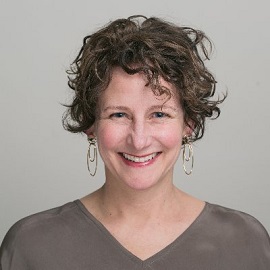
Lauren Baker, PhD, has more than 20 years of experience leading cross-sectoral research, policy and advocacy for sustainable food systems in non-profit, academic, business, policy and philanthropic contexts. Lauren is currently Senior Director of Programs with the Global Alliance for the Future of Food, an alliance of philanthropic foundations working together and with others to transform global food systems. At the Global Alliance, Lauren’s work is focused on the intersections between food systems and health, climate change, agroecology and true cost accounting. Previously, Lauren led the Toronto Food Policy Council, a citizen advisory group embedded within the City of Toronto’s Public Health Division. She was the Founding Director of Sustain Ontario — the Alliance for Healthy Food and Farming. Lauren lectures and teaches in the Global Food Equity programme at the University of Toronto and at Ryerson University.
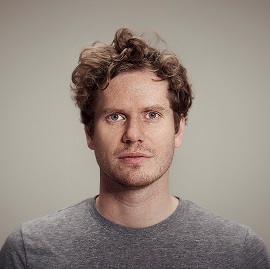
Ben Essen is Chief Strategy Officer at Iris, a global marketing, insight and innovation company working with organisations that include Starbucks and Yum!. Ben is a founding member of the Advertising Association’s Ad Net Zero programme and as part of industry climate action network the Purpose Disruptors, he has created ‘Ecoffectiveness’: a system to bring sustainability targets into marketing effectiveness measurement.

Prof Sir Charles Godfray is the Director of the Oxford Martin School at the University of Oxford and Co-Director of the cross-disciplinary Wellcome-funded Livestock, Environment and People (LEAP) Project. He is interested in how the global food system will need to change and adapt to the challenges facing humanity in the 21st century, and in particular in the concept of sustainable intensification, and the relationship between food production, ecosystem services and biodiversity.
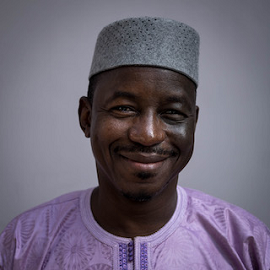
Dr Mamadou Goïta, a development socio-economist and specialist in education and training systems, is the Executive Director of the Institute for Research and Promotion of Alternatives in Development (IRPAD) and member of the panel of IPES Food. He has also worked with UNICEF in Mali, UNDP, Oxfam Solidarity Belgium, the World Social Forum and ACORD. He is a researcher and teaches at the University of Ouaga II.
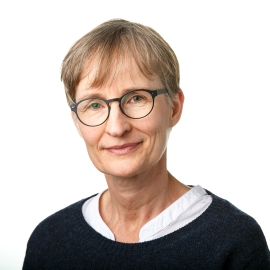
Dr Ylva Hillbur is Pro vice-chancellor with responsibility for international relations and Agenda 2030, at the Swedish University of Agricultural Sciences, SLU. From 2012 to 2017 she was Deputy Director General, research for development, at the International Institute of Tropical Agriculture, IITA. Prior to joining IITA, Ylva worked for almost 20 years at SLU, where her research on insect chemical ecology was focused primarily on applications in environmentally sustainable plant protection. During 2006-2012 she was heading the Department of Plant protection biology at SLU. She obtained her PhD at SLU in 2001 and was appointed associate professor in 2012 and has also been appointed adjunct associate professor at Addis Ababa University, Ethiopia. She is a member of several national and international boards and steering committees.

Dimitri Houtart is passionate about the environment, food & food production. As the BBC’s Rural Affairs Champion, Dimitri helps and advises on the coverage of rural issues across the whole of the BBC. Dimitri also has direct responsibility for many of the BBC Radio 4’s rural affairs, food, natural history and environment programming. His portfolio includes the daily news programme Farming Today as well as series such as Costing the Earth, The Food Programme, 39 Ways to Save the Planet, Tweet of the Day and many more. All together he is responsible for nearly 1000 programmes a year on Radio 4, the World Service and BBC Sounds. Over the years Dimitri has won several national and international awards for his productions. Dimitri is passionate about diversity and is a strong advocate for the integration of people with disability in all part of our society. He loves good food & great drinks and does a fair bit of cooking too.
Prof Elena Lazos Chavero is a biologist and social anthropologist based at the Instituto de Investigaciones Sociales, Universidad Nacional Autónoma de México. She is also a member of the Intergovernmental Science-Policy Platform on Biodiversity and Ecosystem Services. She holds a PhD in Social Anthropology and Socio-Economics of Development (EHESS, Paris, France). Her research spans socio-environmental vulnerabilities, food security/sovereignty, seeds and agrodiversity, perceptions of risks of climate change, reforests in landscape regeneration, gender and environmental local governance in territorial community management. Her publications can be found here.
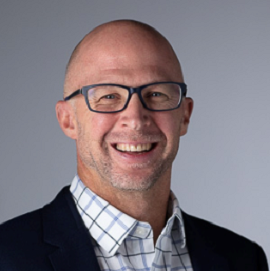
Dr Brent Loken is the Global Food Lead Scientist for WWF. His work focuses on using food as a lever for improving planetary health through education, conservation and research. He has a broad and varied background including founding both a progressive international school and conservation NGO and research into topics ranging from food and health to orangutans and clouded leopards. His commitment to improving planetary health has resulted in some important contributions including rediscovering what was thought to be an extinct monkey species, helping to protect one of the most biologically rich forests on Borneo, educating a generation of environmentalists, co-authoring one of the most influential scientific publications on human health and environmental sustainability and raising global awareness to the critical importance of food system transformation in stopping climate change, reversing biodiversity loss, and restoring nature.
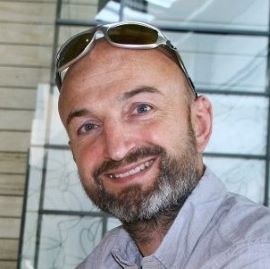
Will Nicholson is Food Waste Programme Lead at WRAP. He was previously at 3Keel and the Food Foundation, where he led the investor and metrics work, tracking food industry progress towards healthy and sustainable food. He has a background integrating food sustainability metrics into business practices in the food industry, social enterprise initiatives around food and social impact, and in the restaurant industry.
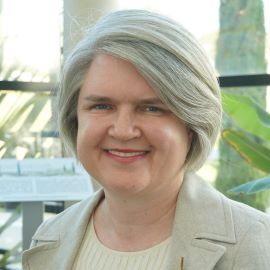
Dr Sonja Vermeulen is Director of Programs at the CGIAR System Organization. She has previously served as Global Food Lead Scientist at WWF International, Head of Research at the CGIAR Research Program on Climate Change Agriculture and Food Security (CCAFS), Director of the Program on Business and Sustainable Development at the International Institute for Environment and Development (IIED), and Research Fellow at the University of Zimbabwe. Her career has bridged academic and applied research, and natural and social sciences, with a strong focus on linking science with public policy and private sector strategies, particularly in Africa and Asia. She has led the design and implementation of research programs on climate change, agriculture, land use, food security, bioenergy, forestry, conservation, land governance and business practice.
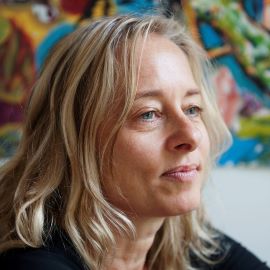
Inge Wallage is Corporate Director Communications & Marketing at Wageningen University & Research. She has pursued an international career, initially in the private sector before making the leap from the oil industry to environmental campaigning. That move sustained her continuous drive to contribute to a better world; a green and peaceful one. Inge has worked across all areas of communications/marketing. She held various in-house and agency roles, including at the International Water Association, Greenpeace International, Statoil, Philips Electronics, Motorola and Burson-Marsteller. Based in The Netherlands, she has lived and worked in London, Norway and Bangkok. Inge is devoted to ‘three As’ in her work: authenticity, accountability and audacity. She is convinced that listening and dialogue are fundamental in negotiating our shared future, and she is expert in a range of innovative techniques, including Deep Democracy and intuitive systemic coaching. Inge also writes fiction, driven by the idea that “stories will change systems".
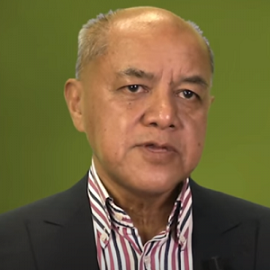
Phrang Roy is the Coordinator of the Rome-based Indigenous Partnership for Agrobiodiversity and Food Sovereignty. He belongs to the Khasi indigenous peoples community of north-east India. At the International Fund for Agricultural Development (IFAD) he became the first indigenous person to be appointed to the level of Assistant Secretary General of the United Nations. He has also worked at the Christensen Fund, founded the North East Slow Food and Agrobiodiversity Society, and been a member of IPES-Food and the Advisory Board for the Agroecology Fund.

